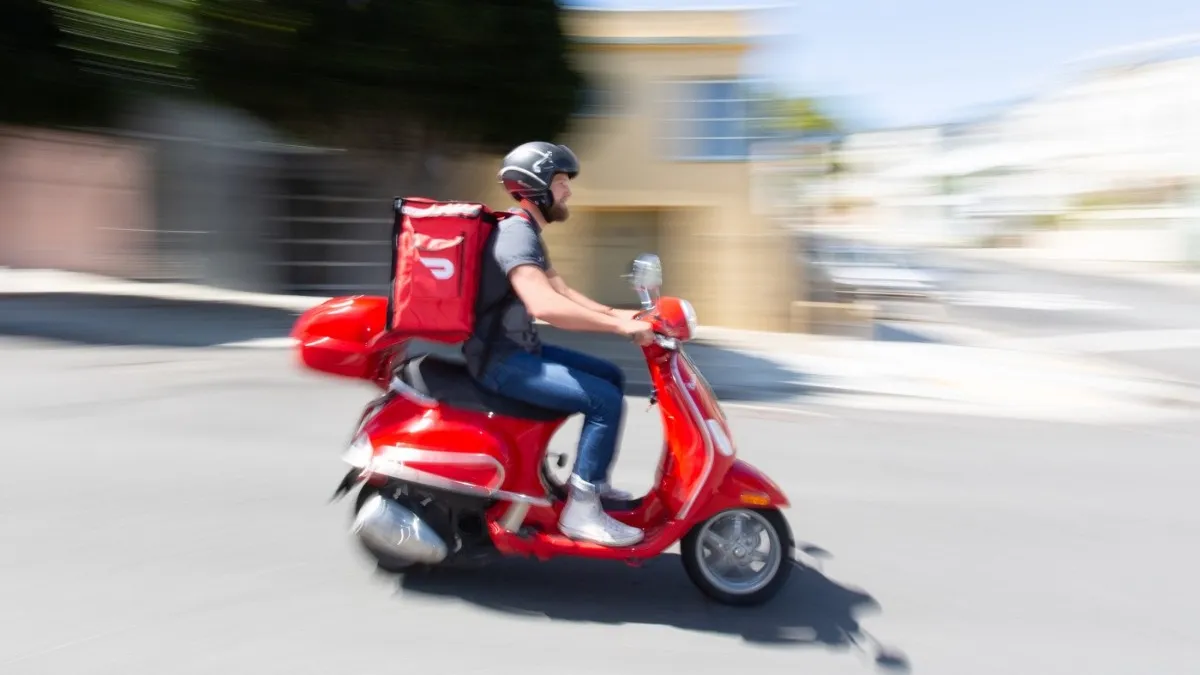Dive Brief:
- A California judge on Friday overturned Proposition 22, a law that classifies drivers for delivery aggregators and rideshare companies as independent contractors instead of employees. The judge ruled the law is unconstitutional because it undermines the legislature's ability to grant workers' compensation rights to delivery and rideshare drivers.
- The Protect App-Based Drivers & Services Coalition, which is backed by DoorDash and Uber, plans to appeal the ruling. Prop 22 will remain in effect until the appeal process is complete, according to a press release.
- Prop 22 passed in November with 58% of votes, allowing aggregators to work around AB-5, an initiative California Gov. Gavin Newsom signed into law in 2019 that requires employers to reclassify gig workers as employees.
Dive Insight:
Uber, DoorDash, Postmates, Instacart and Lyft poured roughly $200 million dollars into support for Prop 22 to avoid the cost of granting gig workers employee status — which they claimed would result in higher prices and longer wait times for delivery and rideshare users.
Now that the law is overturned, app-based business in the Golden State could face major financial challenges, and the ruling could influence legislation across the country. Massachusetts, for example, sued ride-share companies last year over driver reclassification issues. In August, rideshare and restaurant delivery companies introduced a measure similar to Prop 22 in Massachusetts as a result.
Bloomberg reports that costs for these companies could spike between 10% and 20% if the California judge's decision holds. Rideshare fares have already risen due to the combination of increased demand as COVID-19 fears tempered and firms struggled with a driver shortage. Costs for Uber rides rose 53% higher in June than January, for example, the publication reports.
If food delivery companies significantly raise their prices in California to offset the cost of granting employee-level benefits and protections to drivers, it could be bad news for restaurants, too. DoorDash, for example, already raised its service fee in California to 15% so it could bankroll the benefits promised under Prop 22, including health insurance for drivers who work more than 15 hours of more per week and occupational-accident insurance coverage.















